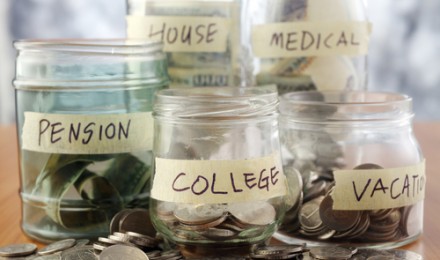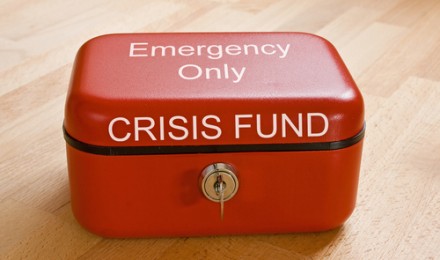Forget about cookie jars and mattresses. As a responsible, financially savvy adult, you should to have 6 to 12 months of living expenses in your emergency fund. As you prepare to set aside this money, think about a safe, secure location. Close enough to be convenient and difficult enough to get to so that you won’t blow it on a whim (not that a vacation to Disney isn’t an emergency for some folks). Ideally this will be somewhere that is liquid, so the money can be retrieved easily. It should also be easy to set up and earn a reasonable rate of interest. Unfortunately having the money safe often means sacrificing the rate of return.
The easiest place to store money is simply in a savings account. Setting one up at a local bank or credit union is fast and easy. Using a smaller institution will often allow a person to get better customer service, as well as personal attention to their account. Many credit unions and small banks offer better interest rates than their larger counterparts. Unfortunately, the interest rates are still fairly low due to the overall economy still being down. To find the best rates for local banks, shop around.
Many banks and credit unions also offer money market accounts. While very similar to a savings a money market often offers a better rate of interest. Money market accounts (which are not to be confused with money market funds, a product offered by a mutual fund company) generally have a minimum deposit required to open. This can be anywhere from $1,000 to $10,000. There is often no minimum balance to keep the account open, however, there are rules in place as to how many withdrawals can be taken from the account every month. For most savers, these limitations should not be a problem.
While they are not generally recommended for emergency money, CD’s can be a great place for saving money. By locking the money up for a set period of time, the saver gets a better rate of return. So for someone willing to put the money into a long term CD, they will get a better return than those who have instant access to the money in a savings or money market account. The problems arise when the money is taken from a CD early. This will cause early withdrawal penalties and can defeat to purpose of setting aside emergency money in the first place.
While the previous three types of accounts are all backed by the Federal Government with FDIC coverage, investing in bonds are not. But bonds can be a great place to store up money in order to earn a little better return than what a savings account has to offer. By looking at government bonds and treasuries a person is able to find a place to set aside money that is about as safe an investment as possible. To get a slightly better rate of return, corporate bonds should be used. The investor must be aware though, that bond investments are not guaranteed, and they could lose value.
The bottom line is start making contributions to your emergency fund today. Opening the account is the first step, and making diligent contributions is the next.







